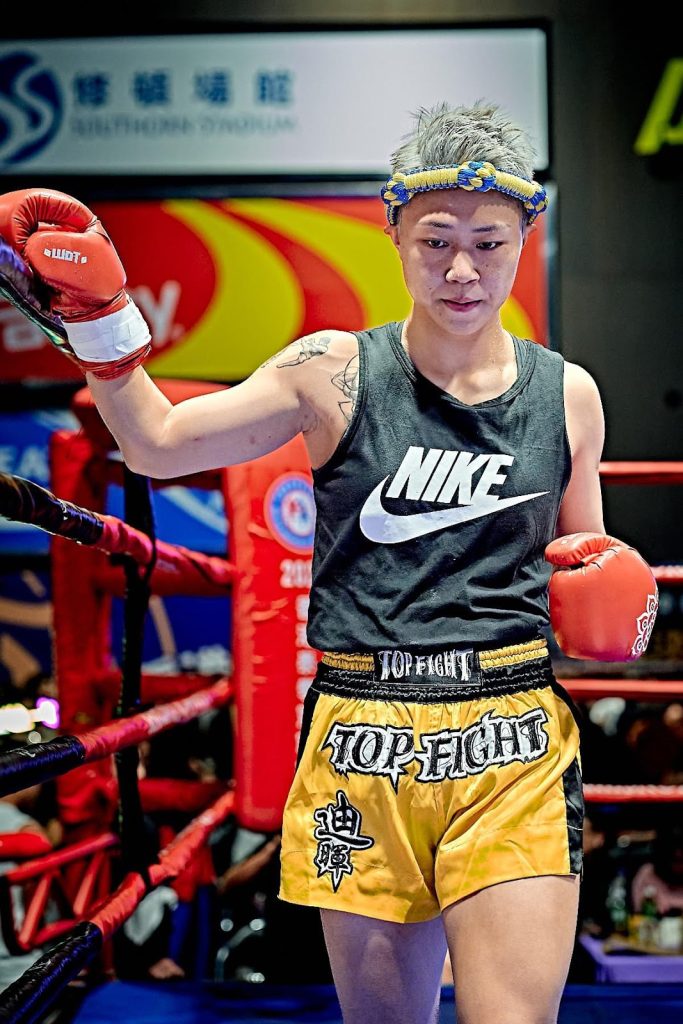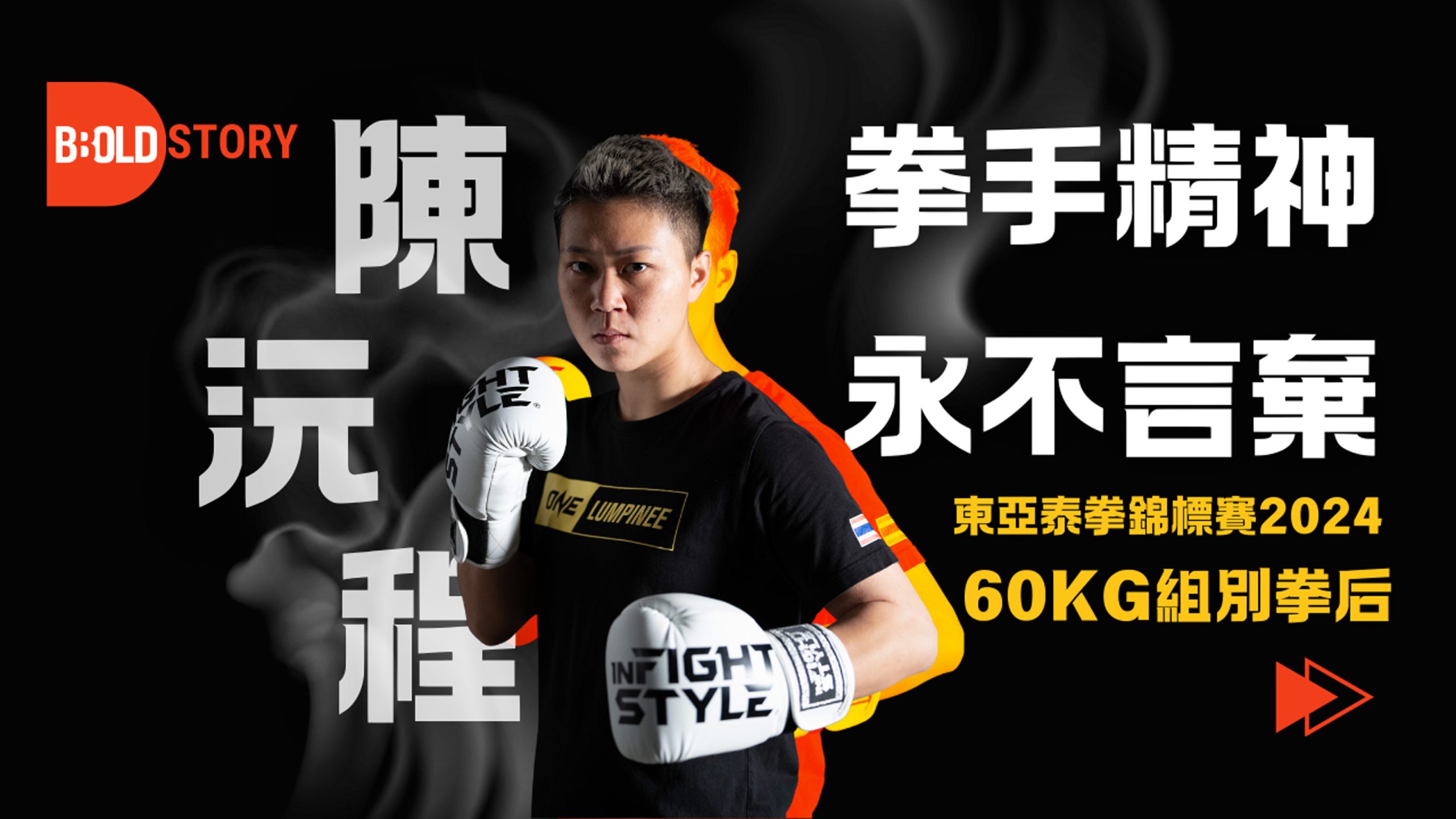Jackie Chan, a former Hong Kong Sanda athlete, has made a remarkable transition to the Hong Kong Muay Thai team, where she now serves as both a competitor and a coach. As the founder of a Muay Thai school, Jackie has dedicated herself to the sport, culminating in a stunning victory at the East Asian Muay Thai Championship in late 2024.

Facing Mongolian fighter Sanchir Batbilegt, Jackie displayed calm precision, countering Sanchir’s aggressive attacks to secure a gold medal in the women’s 60 kg category and earn the title of Muay Thai Queen. Impressively, she achieved this in just one year after switching from Sanda to Muay Thai, showcasing her relentless training and exceptional adaptability.
Jackie’s passion for martial arts was ignited at a young age, inspired by martial arts films and action stars. She began practicing Sanda at just nine years old and gained years of experience, representing Hong Kong in numerous competitions. Her journey reflects not only her growth as an athlete but also her ability to adapt to societal demands, overcoming challenges and pursuing her dreams with unwavering determination.
One notable chapter in Jackie’s martial arts journey occurred at the 2016 World Junior Wushu Championships. Faced with the challenge of cutting weight to meet competition requirements, Jackie found herself one kilogram over the limit the day before weigh-in. In a race against time, she woke up early to run and sit in a sauna, hoping to shed the extra weight. Unfortunately, she fell short by 0.3 kilograms.
However, her teammates rallied around her, lending their jackets to help her sweat off those last few grams during a grueling 45-minute run. This experience left a lasting impression on Jackie, highlighting the physical and mental challenges athletes endure. She reflects, “It was incredibly tough, and rapid weight cutting can be harmful. Discipline and weight management are constant challenges for Muay Thai athletes.”
Jackie’s father has been a crucial influence in her martial arts journey. “Actually, I was the one who encouraged my dad to try Muay Thai,” she shares. After her suggestion, they attended a Muay Thai trial class together, marking Jackie’s first exposure to the sport, even as she remained focused on Sanda at the time. This early experience would eventually lay the groundwork for her transition to Muay Thai.
Over time, Jackie decided to step out of her comfort zone and switch from Sanda to Muay Thai. “From a practical perspective, Sanda is less popular in Hong Kong compared to Muay Thai,” she explains. In addition to her role as a Sanda athlete, Jackie worked part-time as a martial arts coach, which required her to master a wider range of combat techniques. The differences between Sanda and Muay Thai are significant—Sanda emphasizes punches and kicks, whereas Muay Thai incorporates punches, kicks, elbows, and knees. Adapting to this new style took Jackie a full year.
Jackie recalls her first adult competition, where she faced a Filipino opponent and was knocked down in the first round. This defeat was a major blow to her confidence, but with the support of her coach, she persevered through rigorous training and overcame her mental barriers. Laughing, she recounts, “The way I overcame my fear was quite brutal—my coach kept punching me until I was no longer afraid.” This experience strengthened her mental resilience as a fighter.
Jackie’s story is one of perseverance, adaptability, and mentorship. Her journey from Sanda to Muay Thai, combined with her dedication to coaching and promoting the sport, inspires the next generation of fighters. Through her achievements and commitment to martial arts, Jackie Chan continues to make a lasting impact on Hong Kong’s combat sports community.
Jackie’s father has played a crucial role in her martial arts career. Jackie recalls, “Actually, it was me who encouraged my dad to try Muay Thai.” Following her suggestion, they attended a trial class together. This marked Jackie’s first exposure to Muay Thai, even though she was still primarily focused on Sanda at the time. This early experience laid the groundwork for her eventual journey into Muay Thai.

As time passed, Jackie decided to step out of her comfort zone and transition from Sanda to Muay Thai. She shares, “From a practical standpoint, Sanda is relatively less popular in Hong Kong compared to Muay Thai.” In addition to being a Sanda athlete, Jackie worked part-time as a martial arts coach, which required her to master a broader range of combat techniques. The differences between Sanda and Muay Thai are significant; Sanda focuses on punches and kicks, while Muay Thai incorporates punches, kicks, elbows, and knees. Adapting to this new style took Jackie a full year.
She recalls her first adult competition, where she faced a Filipino opponent and was easily knocked down in the first round. This defeat was particularly disheartening for her. Fortunately, with the help of her coach, she persevered through rigorous training and overcame her mental barriers. Jackie laughs as she shares, “The way I overcame my fear was a bit brutal—my coach kept punching me until I was no longer afraid.” This experience further strengthened her mental resilience as a fighter.

Jackie’s martial arts journey is not only about technical improvement but also about personal growth. From a young age, she has been influenced by her coaches and mentors, emphasizing the importance of martial ethics. She notes, “Martial arts are not just about fighting techniques; they are also a way to cultivate the mind and spirit. Many practitioners may have poor tempers, but those individuals often don’t achieve much in martial arts.” Consequently, she prioritizes virtues, believing they are fundamental qualities for any fighter.
She is grateful for the impact martial arts have had on her life over the past decade. Not only has it made her an excellent athlete, but it has also taught her valuable life lessons. Jackie believes that martial arts are not just a sport; they embody a way of life and a set of values.
Jackie is hopeful about the development of Muay Thai in Hong Kong. She points out that in recent years, resources for Muay Thai have increased, and more athletes are willing to commit to the sport. However, compared to Thailand, the development of Muay Thai in Hong Kong still has gaps. In Thailand, Muay Thai often serves as a means for the underprivileged to change their fortunes, whereas in Hong Kong, only those from better economic backgrounds can support their dreams of becoming Muay Thai athletes.
As a coach, Jackie hopes to inspire the new generation of fighters with her experiences as an active competitor. She applies a somewhat “brutal” approach in her training methods, encouraging her students not to fear punches and kicks, but to face them bravely and continuously improve, just as she has, igniting the indomitable spirit of a fighter within them.
While there are many Muay Thai fitness classes nowadays, allowing more people to engage with the sport, Jackie believes this can serve as an opportunity for anyone to start learning about Muay Thai without significantly affecting its culture. She thinks that people can appreciate Muay Thai in various ways, and those with a strong desire to become fighters will naturally accumulate experience through competition.

From Sanda to Muay Thai, from athlete to coach, she embodies the true spirit of martial arts through her actions. She not only showcases her skills in the ring but also practices the importance of martial ethics in life. Her experiences remind us that no matter the obstacles we face, as long as we stay true to our beliefs, we can achieve our dreams.

